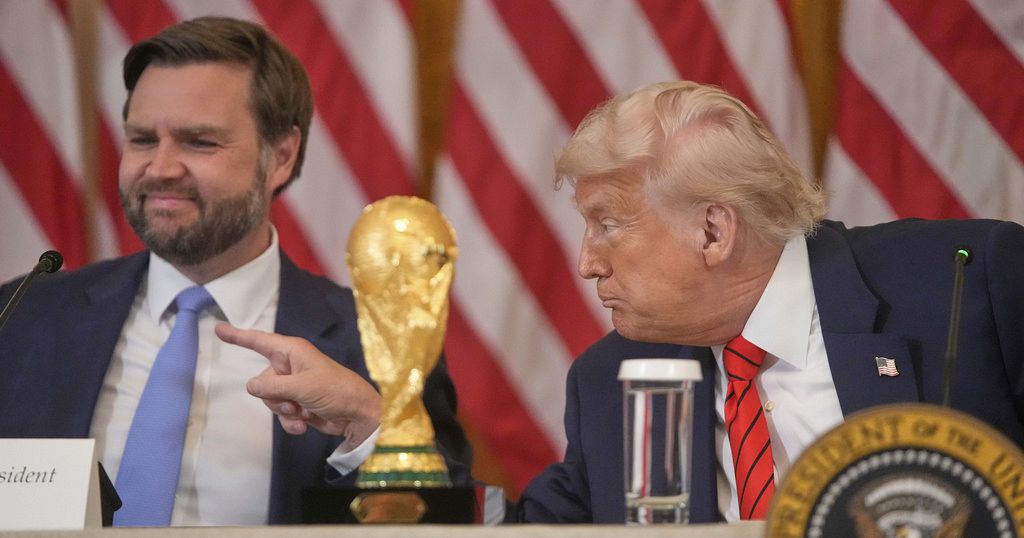Uncertainty Looms Over 2026 World Cup and 2028 Olympics as Trump’s Travel Ban Raises Concerns
The 2026 World Cup and 2028 Los Angeles Olympics are two of the most highly anticipated events in the sports world, with U.S. President Donald Trump expressing his excitement about hosting these global gatherings. However, a significant issue has arisen, casting a shadow over the preparations for these events: the uncertainty surrounding visa policies for foreign visitors. Trump’s latest travel ban on citizens from 12 countries has added to the concerns, leaving many to wonder about the impact on the World Cup and the Summer Olympics.
The travel ban, which affects citizens from countries such as Afghanistan, Myanmar, and Iran, among others, has raised questions about the ability of athletes and fans from these nations to participate in or attend the events. While the ban makes exceptions for athletes and team members traveling for the World Cup, Olympics, or other major sporting events, it does not provide the same exemptions for fans. This has sparked concerns about the potential disruption to the events, as well as the impact on the teams and athletes from the affected countries.
Iran, a soccer power in Asia, is one of the countries affected by the travel ban, and its qualification for the World Cup has already been confirmed. However, the ban’s impact on fans from Iran and other targeted countries is still unclear. Even before the travel ban, fans of the Iranian soccer team faced issues obtaining visas for World Cup visits, highlighting the potential challenges that lie ahead.
The U.S. government is working closely with FIFA and Olympic officials to address these concerns. FIFA President Gianni Infantino has built close ties with Trump, emphasizing the need for smooth operations at the tournament, which is expected to generate $13 billion in revenue for the soccer body. The LA28 chairman and president, Casey Wasserman, has expressed confidence in the federal government’s willingness to accommodate the Olympics, citing the State Department’s "fully staffed desk" to handle short-notice visa processing.
Other host nations have found ways to balance security concerns with the need to welcoming international visitors. For example, Russia and Qatar allowed fans to enter the country with a game ticket doubling as their visa, while also conducting background checks on all visitors. The U.S. government will need to find a similar balance to ensure the success of the World Cup and Olympics.
As the world prepares for these major sporting events, one thing is clear: the uncertainty surrounding visa policies and travel restrictions will have a significant impact on the experience of athletes, fans, and teams from around the world. The U.S. government must work closely with international organizations and stakeholders to find a solution that balances security concerns with the need to welcome the world to these historic events. With careful planning and cooperation, it is possible to create a safe and inclusive environment for all participants, ensuring that the 2026 World Cup and 2028 Olympics are a success for everyone involved.
